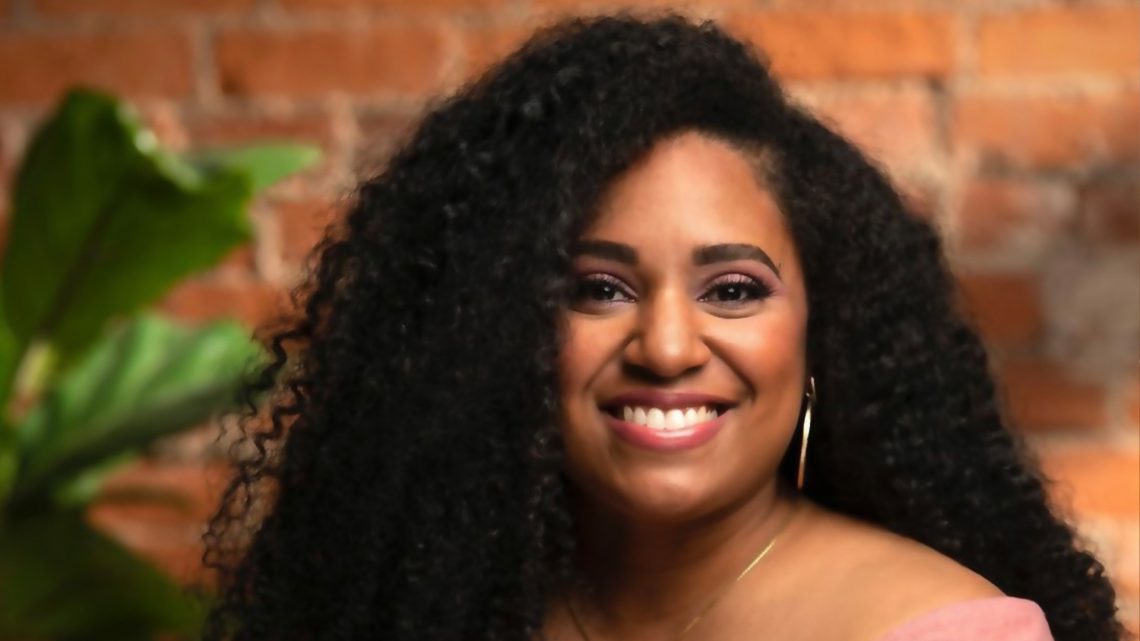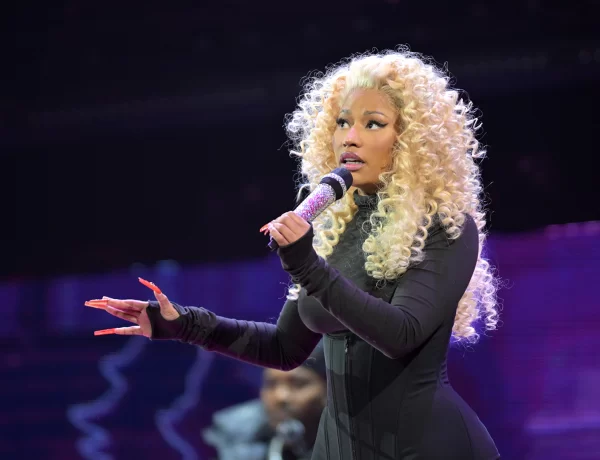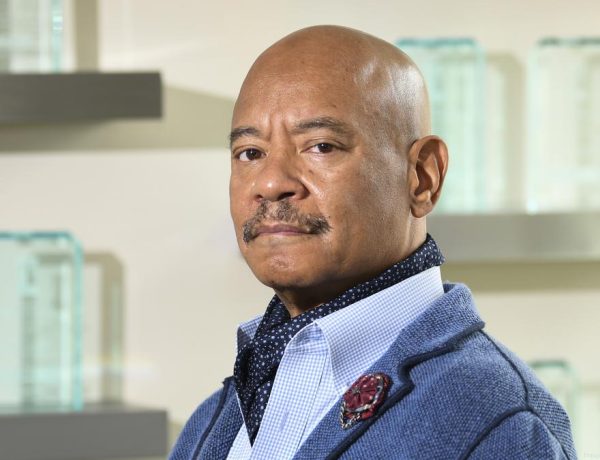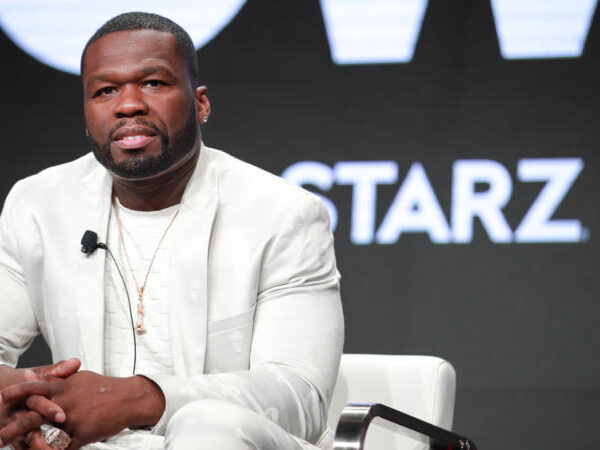Reesha Howard had an unconventional journey into her position as a tech executive.
Born in the South Side of Chicago, IL, Howard recalls growing up to appreciate the differences in cultures and forging connections with people of color as well as with those who identified as queer. This was on full display while she attended Whitney M. Young Magnet High School.
“It’s funny how when you take the time to reflect on how a journey started, you’ll notice all these clues along the way to where you were headed, long before you realized it…,” she mentioned. “By the time I attended Whitney M. Young Magnet High School, I was deeply immersed in culture and always had strong connections with people of color and queer people.”
Howard’s burgeoning advocacy later manifested in her career trajectory, which was uniquely challenging to embark upon. While attending Florida A&M University on a full-ride scholarship, she recalls feeling “under-resourced” and “overwhelmed” with her responsibilities at the time. Her sophomore year she returned to Chicago and attempted to re-enroll in school. However, Howard dropped out of college in her last year to prioritize her family after becoming pregnant with her first child. She eventually walked away from the idea of pursuing a degree all together.
Instead, Howard dedicated her time towards reading, training, obtaining certifications, and mentorship. Today, she now is rooted at Nextdoor as its product marketing and multicultural engagement lead.
We discussed with Howard her achievements while navigating in motherhood, her dedication to promoting diversity, equity, and inclusion, and key Nextdoor initiatives, among other topics.
Editorial note: Portions of this interview have been edited and condensed for clarity and length.
Howard: I do think it would be irresponsible of me to not say this: I do not advocate for people opting out of college. My journey has been unique, and I think people should place themselves in the best position for success, and in many cases that is by attending college. However, don’t think for one minute that your dreams are permanently deferred if that isn’t your story. What you lack in a degree, you may have in ambition and consistency.
On motherhood, one thing I have not yet conquered is the one that plagues so many of us… mom guilt. I am approaching my 18th year of motherhood and have come to terms with the fact that it’s here to stay. I used to beat myself up for this until I started noticing the familiar drive and ambition showing up in my children. I think about how much I want them to achieve all that they are meant to, and I want them to make the necessary sacrifices in life to do that. I approach this much like I do fear. They say to “do it scared,” and I do that, but I also “do it while momming.” There is no magic pill to cure the guilt if you’re a person who experiences it, but it does get easier (maybe just a tad) over time.
When I feel guilty for the many meetings, brainstorming sessions, work trips, etc., these are the same moments that set a precedent for my kids. They have a loving, attentive mother who ALSO has goals. They get to learn from all of that. When I am not physically present, my kids know that I am ALWAYS accessible. My husband jokes about how I am home even when I am not, saying, “How are you here AND there? I got this!” because trust and believe I am still coordinating activities and classes, refereeing sibling disputes, being a listening ear to my teens, or sitting on FaceTime for the fifth time that day so my son can share his screen and make me watch him play Roblox! LOL. We both have busy schedules and are goal-oriented, but we make it all work.
I am very confident in my abilities as a mother, and my kids and I are obsessed with one another. Despite all that, I don’t think I will ever not feel a twinge of sadness when I hold my finger up to indicate to my kids that I can’t be disturbed in a meeting or when my plane is taxiing for takeoff. I like to believe that it’s the price of entry for being a parent who cares and that they will appreciate all of this someday.
AT: What piqued your interest to be involved at Nextdoor as a product marketing lead and multicultural engagement lead?
Howard: I have been a Nextdoor user (Neighbor) for almost seven years and found the platform useful in many ways as a homeowner, but I did have some observations about areas of improvement, especially through the lens of a Black woman who has lived in the inner city and now suburbia. A former colleague of mine from Twitter (now known as X), Chris Klotzbach, joined Nextdoor and suggested I come over. After learning where the company was headed and being reassured that I could influence change for multicultural communities, I joined forces with him. Deciding on career moves for the right reason yields the best results, and working with Chris has become such a bright spot for me. I was hired as a Product Marketing Lead and then pitched a Multicultural Engagement strategy to the C-Suite, including our CEO. Here we are today, as I also carry the title of Multicultural Engagement Lead, and I love having the opportunity to have ideas and to now see them in the wild.
AT: How do you identify and address the unique needs and concerns of diverse communities on the Nextdoor platform?
Howard: I have been evangelizing the importance of listening and then actually implementing change based on what we are hearing. I am deeply immersed in connecting with community leaders and people who simply want more close-knit neighborhoods. There is no blanket solution to solve the loneliness epidemic plaguing the country or to magically make folks happily live, work, and play together. But there are specific concerns and desires within respective communities, and we have to tune into those in order to serve them and to authentically represent them. These learnings are translated back to our cross-functional teams and inform our product roadmap and how we strengthen our brand safety measures.
AT: Can you provide more insights into the AMP (Amplifying Multicultural Experiences) initiative in terms of its purpose and what you intend for the impact to be?
Howard: AMP serves three primary purposes. We are walking arm-in-arm with community leaders, small business owners, and other folks committed to building stronger neighborhoods through their respective initiatives, events, and offerings. We selected a wonderful inaugural group of people from across the U.S., and we have covered a lot of ground since AMP launched in January 2024. We share our views and experiences and learn about our various intersections and what that looks like at their local level. We have sponsored almost a dozen events and initiatives that range from our member Tristan Levingston, who runs the golf and tennis club “Links and Aces,” serving the Black community in Atlanta, GA, to sponsoring the impactful work of Doctor Jon Paul Higgins, whose award-winning podcast “BFF: Black, Fat, Femme” with iHeartMedia is just one of the many ways Jon is working tirelessly to advocate for the LGBTQ+ community and to tackle fat phobia. We were able to support Nuna Atadja’s work at SoLA Impact in Los Angeles, CA, as well as sponsoring efforts of Ruby Taylor’s “Financial Joy School,” which teaches financial literacy to youth in her community. There’s Lauren Pate’s work with the “Black Tech Collective” in Washington DC; Shan Clarke providing yoga and meditation sessions to those who lack the resources to afford them in Atlanta; Eldrin Deas documenting the Durham, NC, art scene (and even surprising us by composing an AMP theme song that we love). There is much more, but it’s important to note how all these moments and experiences add up. Our support and pouring resources into our AMP members is allowing them to boost their impact and create more positive change in Black and brown communities.
The second goal for AMP is for Nextdoor to have reference points directly from the source of multicultural communities. The insights we are receiving are invaluable and ensure we are moving forward with intention. We shouldn’t assume what it is like living in a community we are not a member of or what the experiences are for folks all over the U.S. We need to learn the facts and adjust accordingly to meet the needs of all neighbors.
Third, but certainly not least important, we can shine a spotlight on the businesses of our AMP members. Amplifying their work is what all this is founded on. It’s exciting to be in rooms sharing their names and accomplishments, and we are seeing increased opportunities (that are well deserved and overdue) for them.
AT: In what ways have your efforts as multicultural engagement lead contributed to Nextdoor’s growth and its ability to transcend cultural barriers?
Howard: When I’m asked this question, I always take the opportunity to share the need for mindsets to broaden when considering measurement when it comes to multicultural engagement. Everything about us is unique, and there is layer after layer to peel back to understand what makes us tick, especially because we are not a monolith. It’s hard to make sweeping generalizations, but my lived experiences and what I hear so often is that this has to be a long-term commitment. Our communities have been let down so many times, which means the (sincere) trust-building phase is non-negotiable. We’ve seen and heard it all.
In this day and age, you’re going to have to earn our love, but once you have it, you learn how fiercely loyal Black and brown folks are to systems, brands, and people who do right by us and others. We ain’t playing, and if you aren’t in it for the long haul, it’s best not to pursue us because those metrics will flop, and we will flock wherever people are on the right side of issues. This is a long way of saying that a lot remains to be seen, but we are certainly making progress, and I’d like to believe our best days are ahead of us. As long as I am in this seat, I will do as much as I can to see that through.





